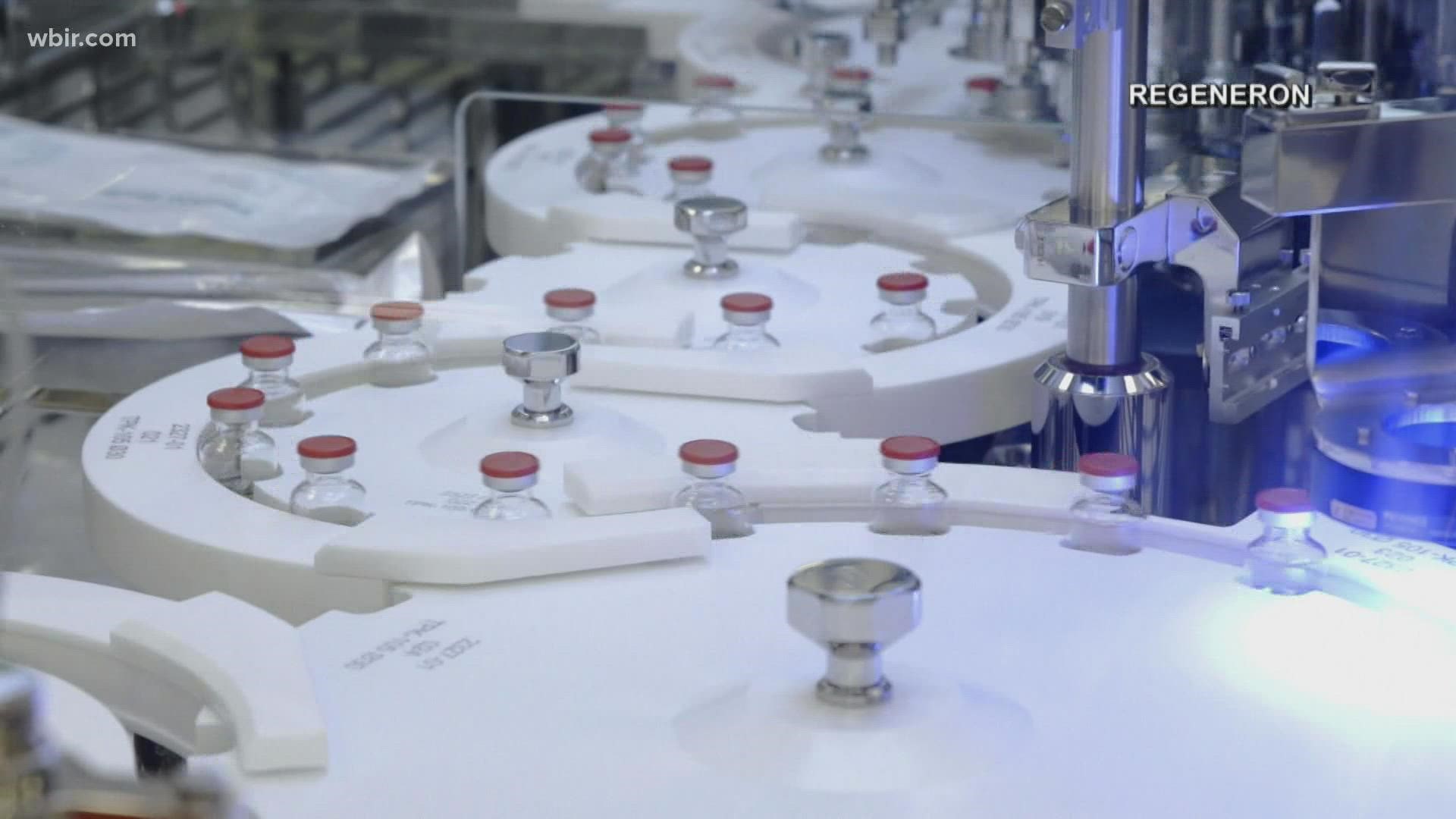KNOXVILLE, Tenn. — The Tennessee Department of Health said it's been warned monoclonal antibody treatment availability "could be temporarily reduced."
The treatment is given to people who contract the coronavirus to boost their immune response and prevent severe symptoms from developing.
Now, TDH is recommending the unvaccinated get priority over the vaccinated, if a provider is struggling with supply.
"If they need to prioritize distribution of the treatment, the NIH guidelines are the recommended approach for that prioritization," a spokesperson said. "Ultimately, this comes down to providers' clinical judgment to ensure those most at risk are receiving this treatment.
The National Institutes of Health (NIH) guidance recommends prioritizing "unvaccinated or incompletely vaccinated individuals who are at high risk of progressing to severe COVID-19" and "vaccinated individuals who are not expected to mount an adequate immune response" over those who are vaccinated and expected to have mounted an adequate immune response.
Kim Lippard, who oversees much of Vanderbilt University Medical Center's monoclonal antibody infusion clinic, said that logic is based on who is at the greatest risk.
"If you're vaccinated, then the hope is your immune system has mounted a response against COVID-19 so you already have a layer of protection," she said. "Individuals who are not vaccinated don't have that layer of protection, so we expect [them] to be at greater risk."
She said monoclonal antibodies have been a helpful tool to fight rising COVID-19 hospitalizations.
"We're trying our best to provide the treatment to individuals to keep people out of the hospital as our hospitals have become overrun," she said. "The goal of antibody treatment is to keep people out of hospital. It is not to pretend long term from getting COVID."
Seven states have accounted for 70% of orders for the therapy, according to reports. They are Florida, Texas, Mississippi, Tennessee, Alabama, Georgia, and Louisiana.
Last week, Governor Bill Lee said Tennessee was delivering around 7,000 monoclonal antibody treatments per week per COVID-19.
TDH does not have an update on allocation for this week, according to a spokesperson. Providers across the state continue to receive supply of the treatment.
However, Kentucky leaders recently said that the state may not have enough of a supply to meet the rising demand for monoclonal antibody therapies.
In East Tennessee, the Summit Medical Group and the University of Tennessee Medical Center said they were providing monoclonal antibody therapies to eligible people.
Officials at UTMC said in late August that they could treat up to 40 patients a day, as long as they are eligible. Patients must be considered to be at high risk for COVID-19.
People are considered to be high risk if they:
- Are 65 years and older
- Have underlying conditions, such as diabetes or chronic heart disease
- Have a compromised immune system, such as, patients with cancer and those who have undergone transplantation
- You are receiving high doses of steroids or other drugs to suppress your immune system
Hilton said that the medical center gets many referrals for the treatment. Providers can refer patients online.
Officials also said that federal officials recently told states that there were disruptions to the supply chain for monoclonal antibody products. However, Tennessee providers are continuing to offer the treatment, but state leaders warned that the availability could be temporarily reduced.

